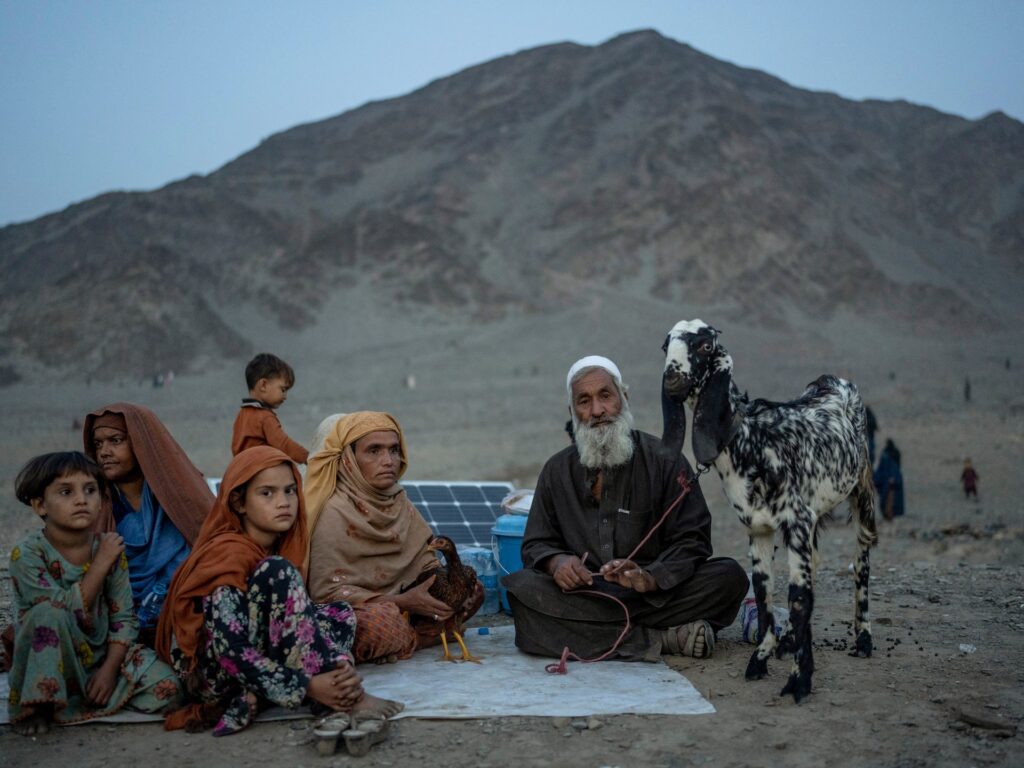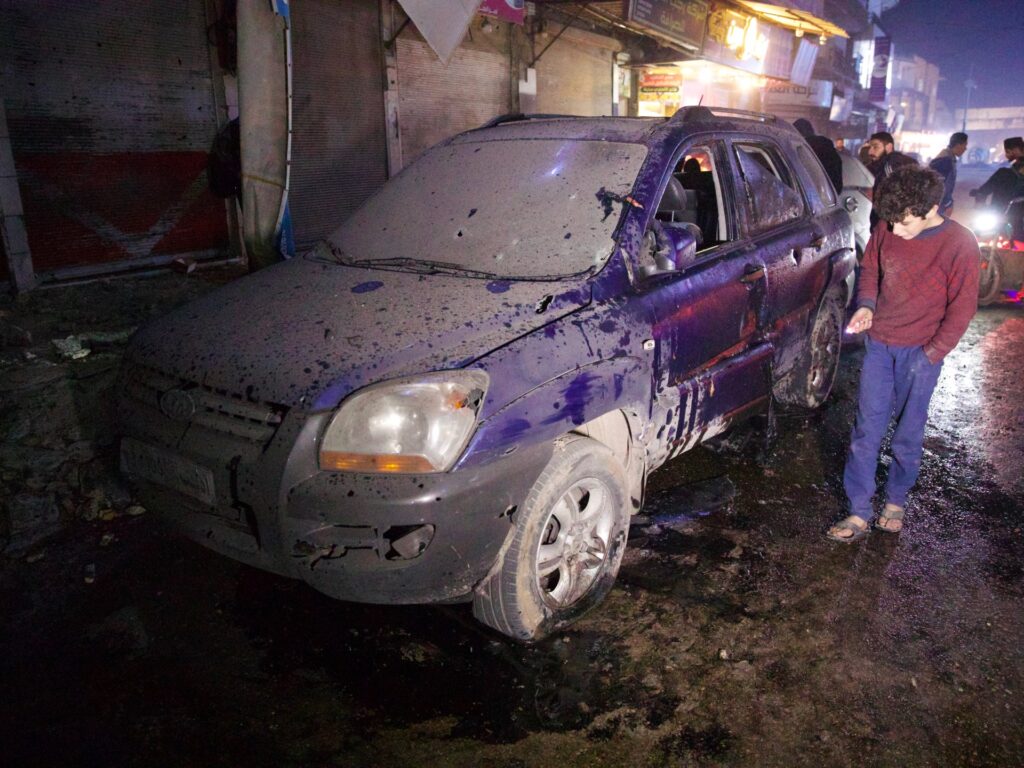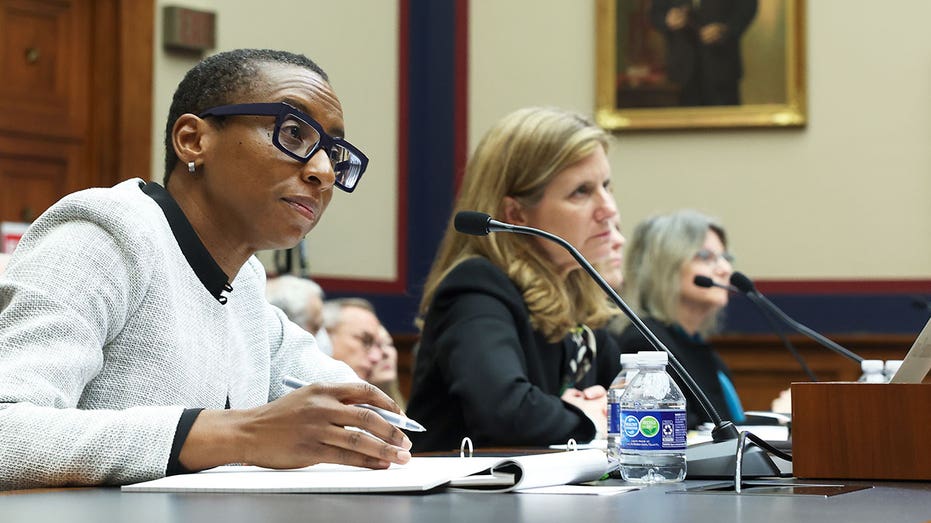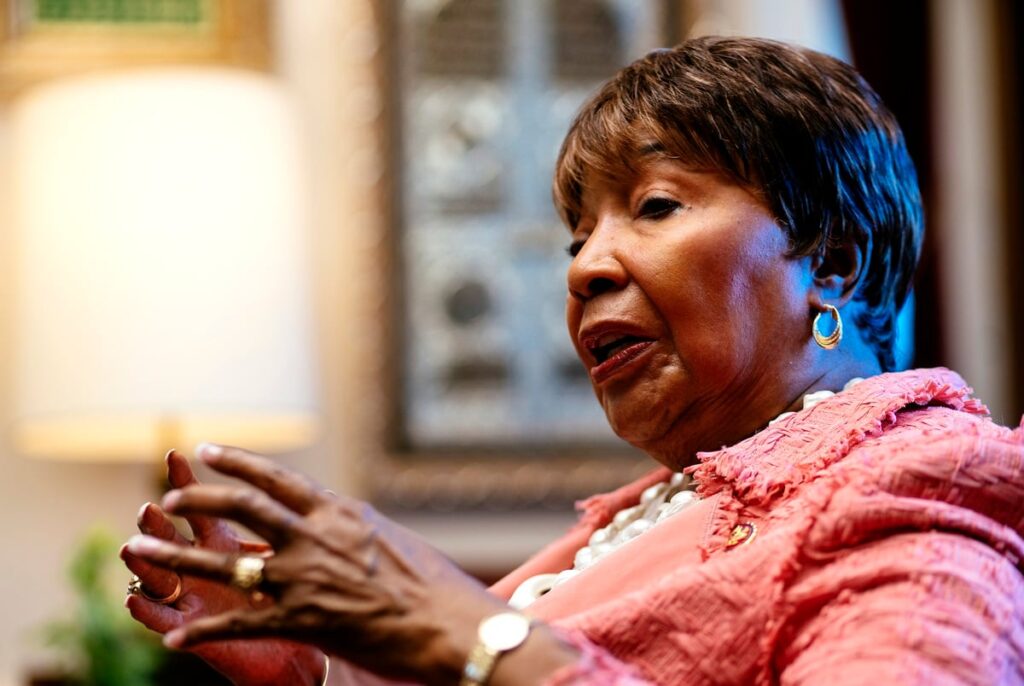Denmark’s Queen Margrethe II to abdicate after 52 years on the throne

The Danish queen announces January 14 abdication during New Year’s Eve address live on TV, making way for son, Crown Prince Frederik. Denmark’s Queen Margrethe II will abdicate on January 14 after 52 years on the throne and will be succeeded by her eldest son Crown Prince Frederik, she said in her annual New Year’s speech. The 83-year-old queen, who took over the throne in 1972, is the longest-serving monarch in Europe following the death of Britain’s Queen Elizabeth II in September 2022. In February, she underwent a successful back surgery. “The surgery naturally gave rise to thinking about the future – whether the time had come to leave the responsibility to the next generation,” she said in the speech on Sunday. “I have decided that now is the right time. On 14 January 2024 – 52 years after I succeeded my beloved father – I will step down as queen of Denmark,” she said. “I leave the throne to my son, Crown Prince Frederik,” she added. Danish Prime Minister Mette Frederiksen confirmed the decision in a news release. He paid tribute to the monarch, offering a “heartfelt thank you to Her Majesty the Queen for her lifelong dedication and tireless efforts for the Kingdom”. In Denmark, formal power resides with the elected parliament and its government. The monarch is expected to stay above partisan politics, representing the nation with traditional duties ranging from state visits to national day celebrations. Born in 1940, Margrethe has been one of the most popular public figures in Denmark. The 1.82m (6-foot) tall, chain-smoking monarch often walked the streets of Copenhagen virtually unescorted and won the admiration of Danes for her warm manners and for her talents as a linguist and designer. A keen skier, she was a member of a Danish women’s air force unit as a princess, taking part in judo courses and endurance tests in the snow. Margrethe remained tough even as she grew older. In 2011, at age 70, she visited Danish troops in southern Afghanistan wearing a military jumpsuit. As monarch, she crisscrossed the country and regularly visited Greenland and the Faeroe Islands, the two semi-independent territories that are part of the Danish Realm. Adblock test (Why?)
The displaced Afghans making gruelling journeys to survive

The barren desert plain among the mountains of eastern Afghanistan is filled with hundreds of thousands of people. Some live in tents. Others live out in the open, among the piles of the few belongings they managed to take as they were forced from neighbouring Pakistan. The sprawling camp of people returning to Afghanistan through the Torkham border crossing is the latest facet of Afghans’ long, painful search for a stable home. More than 40 years of war, violence and poverty in Afghanistan have created one of the world’s most uprooted populations. Some 6 million Afghans are refugees outside the country. Another 3.5 million people are displaced within the country of 40 million, driven from their homes by war, earthquakes, drought or resources that are being depleted. Pakistan’s decision earlier this year to deport undocumented Afghans has struck them hard. Many Afghans have lived for decades in Pakistan, driven there by successive wars at home. When the order was announced, hundreds of thousands feared arrest and fled back to Afghanistan. Often, Pakistani authorities prevented them from taking anything with them, they say. Their first stop has been the camp in Torkham, where they might spend days or weeks before Taliban officials send them to a camp elsewhere. The expulsions from Pakistan have swelled the already large numbers of Afghans who are trying to migrate to Iran, hoping to find work. Adblock test (Why?)
‘Outraged’: Brazilian Muslims face growing Islamophobia over Gaza war

Sao Paulo, Brazil – It wasn’t unusual for patients to arrive in a foul temper at the hospital emergency room in São Paulo, Brazil, where physician Batull Sleiman worked. After all, every day brought new medical crises, new requests for urgent care. Sleiman had seen it all. But she was not expecting the level of anger she received several weeks ago. A patient had arrived in her examination room frustrated over the time he spent waiting for a doctor’s care. Sleiman recalled his issue was “not urgent”. Still, as she treated him, he accused her of being impolite. “You’re being rude with me because you’re not from Brazil,” Sleiman remembers him saying. “If you were in your country…” Batull Sleiman believes one of her patients lashed out after seeing her hijab [Courtesy of Batull Sleiman] Sleiman said she turned away rather than hear the rest. The daughter of Lebanese immigrants, she believes the man reacted the way he did because of one thing: her hijab. “I was surprised and outraged,” Sleiman told Al Jazeera. But, she added, the atmosphere in Brazil had grown more tense since the war in Gaza had erupted. “I’ve been noticing that people have been staring more at me on the street since October.” But Sleiman is not alone in feeling singled out. As the war in Gaza grinds on, Brazil is one of many countries facing increased fears about religious discrimination, particularly towards its Muslim community. A survey released last month from the Anthropology Group on Islamic and Arab Contexts — an organisation based at the University of São Paulo — found that reports of harassment among Muslim Brazilians have been widespread since the war began. An estimated 70 percent of respondents said they knew someone who experienced religious intolerance since October 7, when the Palestinian group Hamas launched an attack on southern Israel, killing 1,140 people. Israel has since led a military offensive against Gaza, a Palestinian enclave, killing more than 21,000 people. That response has raised human rights concerns, with United Nations experts warning of a “grave risk of genocide”. While Palestinians are an ethnic group — and not a religious one — the University of São Paulo’s Professor Francirosy Barbosa found that the events of October 7 resulted in incidents of religious intolerance in Brazil, as Palestinian identity was conflated with Muslim identity. She led November’s survey of 310 Muslim Brazilians. Respondents, she explained, reported receiving insults that reflected tensions in the Gaza war. “Many Muslim women told us they are now called things like ‘Hamas daughter’ or ‘Hamas terrorist’,” she told Al Jazeera. The survey, conducted online, also found that many of the respondents also had firsthand experience with religious intolerance. “About 60 percent of the respondents affirmed that they suffered some kind of offence, either on social media or in their daily lives at work, at home or in public spaces,” Barbosa said. Women in particular, the study noted, reported slightly higher rates of religious intolerance. A Palestinian Brazilian woman holds up a sign at a protest in Brasilia on October 20 that reads, ‘Muslim women of Brazil: anti-Zionism, anti-militarism, anti-extremism’ [File: Eraldo Peres/AP Photo] The question of Islamophobia was catapulted into the national spotlight this month when a video spread on social media appearing to show a resident of Mogi das Cruzes, a suburb of São Paulo, rushing towards a Muslim woman and grabbing at her headscarf. The video was even broadcast on news outlets like CNN Brasil. One of the women involved, Karen Gimenez Oubidi, who goes by Khadija, had married a Moroccan man and converted to Islam eight years ago. She told Al Jazeera that the altercation involved one of her neighbours: She was upset after their children had argued. “She came down with her brother and was very aggressive. She called me a ‘cloth-wrapped bitch’. I soon realised it was not only about the kids’ fight,” Gimenez Oubidi said. Neighbours attempted to separate the two women. One man in the video, however, grabbed Gimenez Oubidi from behind, wrapping an arm around her throat to hold her down. Gimenez Oubidi identified him to Al Jazeera as her neighbour’s brother. Karen Gimenez Oubidi, known as Khadija, was the subject of a viral video that raised questions about Islamophobia [Courtesy of Karen Gimenez Oubidi] “He said a few times to me, ‘What are you doing now, terrorist?’ He didn’t say it loudly: It was just for me to hear. He knew what he was doing,” Gimenez Oubidi said. She added that the fight her son had had with the neighbour’s child was also over her hijab. The woman who attacked Oubidi, Fernanda — she said she did not want her full name revealed for fear of a public backlash — disputed this account. Fernanda said her son had been hit by Oubidi’s son in the playground, and while she had physically attacked Fernanda, she had not referenced her religion. “I never insulted her for her religion. That simply didn’t happen. I’d never do something like that,” she said. A government report from July noted that religious intolerance “occurs most intensely against those of African origin, but it also affects Indigenous, Roma, immigrant and converted individuals, including Muslims and Jews, as well as atheist, agnostic and non-religious people”. Brazil is predominantly Christian, home to an estimated 123 million Catholics — more than any other country in the world. But it has a long-standing, if smaller, Muslim population. Academics believe Islam arrived in the country with the transatlantic slave trade, as kidnapped African Muslims continued to practice their religion in their new surroundings. One group of enslaved Muslim Brazilians even launched a rebellion against the government in 1835, called the Malê uprising — a term derived from the Yoruba word for Muslim. Brazil’s Muslim population grew with waves of immigration in the late 19th and 20th centuries, particularly after the collapse of the Ottoman Empire. Arab immigrants, particularly from Lebanon, Syria and Palestine, came to know Brazil as their home.
Assad forces target crowded market, kill two: Syria’s White Helmets

Meanwhile, Israel bombed Aleppo and Neirab, leaving Syrians trapped between two forces raining fire from the sky. Idlib, Syria — Two civilians, including a child, were killed, and 16 others, including four children, were injured in an artillery attack by Syrian regime forces targeting a popular market in the centre of Idlib city on Saturday evening, according to the Syria Civil Defence. “We received two martyrs and 14 injuries, including two critical cases, at the hospital, and they are now in the operating room,” said Ismail al-Hassan, the head of the emergency department at Idlib University Hospital. Al-Hassan told Al Jazeera that the regime of President Bashar al-Assad had recently intensified its targeting of the area, necessitating a constant state of preparedness to receive any injuries within the city or its vicinity in the event of any bombardment. “For nearly 13 years, we have been working to save civilian casualties targeted by the Assad regime and Russia,” al-Hassan said. The Syria Civil Defence, also known as the White Helmets, said that earlier on Saturday, a child was wounded as a result of artillery shelling targeting the city of Atarib in the western Aleppo countryside. “The timing and location of today’s attack in Idlib indicate that its goal is to kill the largest number of civilians,” said Ahmed Yazji, a board member of the Syria Civil Defence. Yazj told Al Jazeera that the attacks by the Syrian regime and Russia on the Idlib region consistently aim to target vital centres, schools, and hospitals with the intention of killing civilians. “Since the beginning of 2023 until today, we have documented more than 1,200 attacks by the Assad regime and Russia on the northwestern Syria region, including 27 attacks on schools and 16 attacks on displaced camps,” he said. “The attacks of the Assad regime and Russia on the region can only be described as terrorist attacks seeking to undermine stability in the area.” Idlib province, the last stronghold controlled by Syrian opposition fighters, is considered the most densely populated area in northwestern Syria, hosting 4.5 million people, including 1.9 million living in internally displaced camps, according to the UN Office for the Coordination of Humanitarian Affairs (OCHA). “Within moments, the market turned into a pool of blood and thick dust,” said Abdullah Aloush, a displaced person from Khan Shaykhun and the owner of a nearby shop in the targeted area in Idlib city. Aloush told Al Jazeera that the market was targeted at a time when it was crowded with civilians. “Initially, myself and those with me in the shop were helpless, not knowing what to do, before we went out to check on our neighbours and assist the injured.” Earlier on Saturday, Israeli warplanes conducted air strikes on Aleppo and Neirab airports, as well as several points belonging to the Syrian regime south of Aleppo. The Israeli air strikes targeted farms between the villages of Zahabiya and Sheikh Saeed in the Neirab military airport area, housing warehouses and headquarters for Iranian militias. A missile also fell in the area of Aleppo International Airport and Neirab military airport, according to the Syrian Observatory for Human Rights, based in London. “As usual, the Assad regime, unable to respond to Israeli raids on its sites, targets civilians in northwestern Syria,” said Mohammed al-Saleh, 34, the owner of a cafe on the street in Idlib that was bombed. Al-Saleh, who was approximately 15m (50 feet) away from the bombing, warned everyone in the cafe not to leave the place for fear of a repeat of the bombing in the area and to avoid new casualties. “At these moments, our feeling can only be described as being in the embrace of death,” said Al-Saleh. “In these days, while people around the world are preparing to celebrate the start of a new year, we in Idlib are preparing to bury our friends and family who were killed today.” Adblock test (Why?)
Harvard honor council student says Claudine Gay got by on ‘lower standard’ in plagiarism case, should resign

An undergraduate member of Harvard’s Honor Council believes university president Claudine Gay is “getting off easy” from her recent plagiarism allegations. The student, who remained anonymous, wrote an op-ed published in the Harvard Crimson student newspaper on Sunday. Gay is facing widespread accusations of antisemitism and plagiarism, but the university’s board has declared it still supports her. “I have served as a voting member of the Harvard College Honor Council, the body tasked with upholding the College’s community standards of academic integrity,” the student began. “In my time on the Council, I heard dozens of cases. When students — my classmates, peers, and friends — appear before the council, they are distraught. For most, it is the worst day of their college careers. For some, it is the worst day of their lives. They often cry.” “It is because I have seen first-hand how heart-wrenching these decisions can be, and still think them necessary, that I call on University President Claudine Gay to resign for her numerous and serious violations of academic ethics,” the student continued. COLLEGE ADMISSIONS CONSULTANT IN ‘COMPLETE SHOCK’ AS MULTIPLE STUDENTS REJECT HARVARD EARLY ACCEPTANCE OFFERS “When my peers are found responsible for multiple instances of inadequate citation, they are often suspended for an academic year. When the president of their university is found responsible for the same types of infractions, the fellows of the Corporation ‘unanimously stand in support of’ her,” the student wrote. The student went on to argue that evidence suggests Gay’s plagiarism was “routine and pervasive” throughout her career. LAW FIRM TO CEASE ON-CAMPUS RECRUITING AT HARVARD DUE TO UNIVERSITY PRESIDENT’S CONGRESSIONAL TESTIMONY The piece then blasted the university’s leadership for allowing Gay to simply retroactively correct the instances of plagiarism in her work to avoid consequences, something students would never be allowed to do. HARVARD COLLEGE SEES DROP IN EARLY APPLICANTS COMPARED TO LAST YEAR: ‘HARVARD’S REPUTATION HAS BEEN DAMAGED’ “There is one standard for me and my peers and another, much lower standard for our University’s president. The Corporation should resolve the double standard by demanding her resignation,” the student concluded. The Harvard Crimson noted that it allowed the op-ed’s author to publish the piece anonymously, “to protect the author from retaliation, and because the proceedings of the Harvard College Honor Council are sensitive and confidential.”
Texas AG blasts Biden admin for ‘aiding and abetting’ cartels after migration numbers smash record

Following reports of data showing migration at the southern border smashed monthly records in December, Texas Attorney General Ken Paxton accused the Biden administration of “aiding and abetting” drug cartels. “We’ve got the Biden administration, as I said, aiding and abetting the cartels, encouraging the cartels to make billions of dollars and to bring as many people here as fast as possible, and as soon as possible,” Paxton told Fox News’ Jason Chaffetz on “Sunday Morning Futures.” “That’s what the Biden administration is doing. They’re not just not doing their job, they’re actually encouraging the opposite,” he added. Paxton was reacting to questions regarding a 15,000-person migrant caravan currently making its way to the border, in addition to Customs and Border Protection (CBP) sources telling Fox News last week that migrant numbers at the southern border in December broke records for monthly encounters. DOJ THREATENS TO SUE TEXAS OVER ANTI-ILLEGAL IMMIGRATION LAW; ABBOTT PREPARED FOR SUPREME COURT FIGHT Ahead of December officially ending, sources said there had been more than 276,000 migrant encounters in the month so far, smashing previous monthly records. Officials anticipate processing 300,000 migrants this month. TEXAS IMMIGRATION LAW PUSHBACK MARKS LATEST TENSION BETWEEN BIDEN ADMINISTRATION AND BORDER STATES OVER CRISIS Paxton also reacted to the Department of Justice warning Texas leaders on Thursday the state would face legal action if a new immigration law allowing local law enforcement officers to arrest individuals suspected of entering the U.S. illegally is implemented. The law allows state judges to order illegal immigrants to be removed from the country. “This threat of a lawsuit because we merely want to protect our own citizens from the crime and the cost of illegal immigration, when it’s really their job to do it,” Paxton said of the threat of legal action over the upcoming law. TEXAS GOV. ABBOTT SIGNS BILL MAKING ILLEGAL IMMIGRATION A STATE CRIME Paxton also took issue with mayors of Democrat-led sanctuary cities who have sounded off against the migrant spikes, including blaming Texas for busing migrants to liberal cities, arguing that northern cities are only seeing a fraction of the migrant crisis compared to Texas. FEDERAL APPEALS COURT BLOCKS BIDEN ADMIN FROM REMOVING TEXAS’ RAZOR WIRE AT SOUTHERN BORDER “All of these cities during the Trump administration created sanctuary cities and discouraged the Trump administration from blocking the border and keeping these illegals from coming across. Now that the Biden administration is allowing them, and they’re getting a few hundred or a few thousand versus the literally hundreds of thousands, if not millions, that the border states are getting. They’re complaining, and it’s a little ironic that … they’re blaming Texas, when all we’re dealing with is a much more significant problem.” Fox News Digital reached out to the White House regarding Paxton’s remarks Sunday afternoon.
Weather update: ‘Cold day’ warned issued for five states during next 3-4 days; check IMD forecast here

The dense fog has significantly impacted visibility across multiple states, with pockets in Punjab, Haryana, Uttar Pradesh, and other regions reporting visibility as low as zero to a mere 200 meters.
Former U.S. Rep. Eddie Bernice Johnson, Black Democratic trailblazer, dies at 88

Johnson, the first Black woman elected to any seat in Dallas and the first Black Dallasite to serve in Congress, was a towering figure in Texas politics.
Biden’s polling problem: Running for re-election in 2024, the president ends 2023 underwater

When it comes to his approval rating, President Biden ends 2023 where he started the year – firmly in negative territory. The president stood at 43% approval and 57% disapproval in the latest Fox News national poll, which was conducted in mid-December, and he registered below 40% approval in a handful of major polls in the field this month. Biden’s approval rating stands at 41%-56% as the calendar turns from 2023 to 2024, according to an average of all the most recent national surveys compiled by Real Clear Politics. The approval rating is a key indicator of a president’s performance, clout and popularity and is a closely watched metric, especially when an incumbent in the White House seeks a second term. The 81-year-old Biden is running for re-election in 2024. HEAD HERE TO CHECK OUT THE LATEST FOX NEWS POLLING Biden’s approval rating hovered in the low to mid 50s during his first six months in the White House. However, the president’s numbers started sagging in August 2021 in the wake of Biden’s much-criticized handling of the turbulent U.S. exit from Afghanistan and following a surge in COVID-19 cases that summer, mainly among unvaccinated people. The plunge in the president’s approval was also fueled by soaring inflation – which started spiking in the summer of 2021 and remains to date a major pocketbook concern with Americans – and the surge of migrants trying to cross into the U.S. along the southern border with Mexico. THESE SIX BATTLEGROUND STATES COULD COST BIDEN THE WHITE HOUSE IN 2024 Biden stands well below where his three most recent two-term predecessors – former Presidents Clinton, George W. Bush and Barack Obama – stood at this point in their presidencies, as they successfully ran for re-election. The only recent president whose approval ratings were nearly as negative as Biden’s current numbers was his most recent predecessor, former President Trump, who was defeated by Biden in the 2020 election. Trump stood at 45%-53% in a Fox News poll conducted in December 2019, and at 45%-52% on the last day of 2019, according to the Real Clear Politics average at the time. Trump remains the commanding frontrunner for the 2024 Republican presidential nomination, and as the new year approaches, a 2020 election rematch appears likely next November. Biden once held the upper hand over Trump in 2024 presidential election surveys, but Trump began enjoying an advantage over his successor in the White House in many polls starting in October. “Predictions more than a year out tend to look a little different a year later,” Biden campaign spokesperson Kevin Munoz said early last month. “Don’t take our word for it: Gallup predicted an eight-point loss for President Obama only for him to win handily a year later.” Veteran Republican pollster Neil Newhouse concurred that polls “aren’t necessarily predictive a year out.” But Newhouse emphasized “that doesn’t mean you ignore these polls and they [Biden’s campaign] do so at their own risk.” Get the latest updates from the 2024 campaign trail, exclusive interviews and more at our Fox News Digital election hub.
Mumbai Trans Harbour Link to be inaugurated on this date: Key points about India’s longest sea bridge

The MTHL will further connect to the arterial Mumbai Pune Expressway, which links the state’s two largest cities, as per officials.

